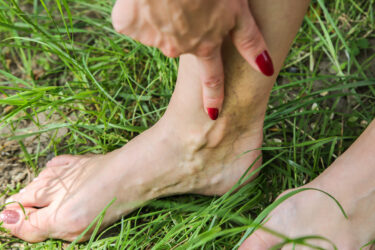Gout is a type of arthritis that causes severe pain, swelling, and burning sensation in the joints, especially that of the big toe. The condition occurs when uric acid accumulates around the joints and turns into crystals. Purine, a substance found in certain foods, propagates the formation of uric acid. Here’s a list of foods a gout patient must have and avoid to manage their symptoms.
Foods that benefit a gout patient
Knowing what foods to eat to manage gout symptoms is essential and, when combined with the right course of medication, can bring about a remarkable improvement. Here are some foods gout patients can enjoy:
Cherries
Tart cherries or their juice is a potent natural medicine for gout. It helps curb the gout attacks as well as the discomforting symptoms.
Ginger
Besides its potent aroma and flavor, ginger makes for a great anti-inflammatory spice to manage gout symptoms. Ginger can be added to many dishes and beverages. Many gout patients also apply non-diluted ginger juice to the affected area.
Fish, nuts, olive oil, seeds
Foods rich in omega-3 fatty acids, such as fish, nuts, olive oil, and seeds, are packed with anti-inflammatory properties and are, hence, beneficial for gout patients.
Oranges, lemons, bell peppers
Vitamin C helps reduce uric acid levels in the body, which, of course, is beneficial for gout patients. Other foods rich in vitamin C include blackcurrant, broccoli, and brussels sprouts.
Apple cider vinegar
Apples and apple cider vinegar can benefit gout patients by ridding their bodies of accumulated uric acid. Apples make for a great snacking option, too, and patients can try their hand at exciting beverages and salads that consist of apple cider vinegar.
Grains, barley, quinoa, oats
These staple foods are packed with non-inflammatory properties that help manage gout symptoms. In fact, research suggests that whole grains could even resolve arthritis. Another additional benefit of whole grains is that they keep a person feeling full for long, eventually aiding in weight loss.
Foods to avoid
Although the above foods can help manage gout, certain others can interfere with the healing process. Here’s a list of foods to avoid for a gout patient:
Meat and seafood
Red meat and certain seafood tend to be high in purines, a substance directly associated with increased uric acid levels. Therefore items like bacon, turkey, veal, venison, sardines, cod, mussels, trout, scallops, anchovies, liver, and haddock must be avoided.
Carbonated drinks and packaged juices
Fructose consumption in any form is considered a significant risk factor for gout. If one has gout or is at potential risk of developing it, carbonated drinks can be replaced with tart cherry juice.
Alcohol
Alcohol can trigger gout symptoms as the body prioritizes getting rid of alcohol and lets uric acid accumulate in the joints.







